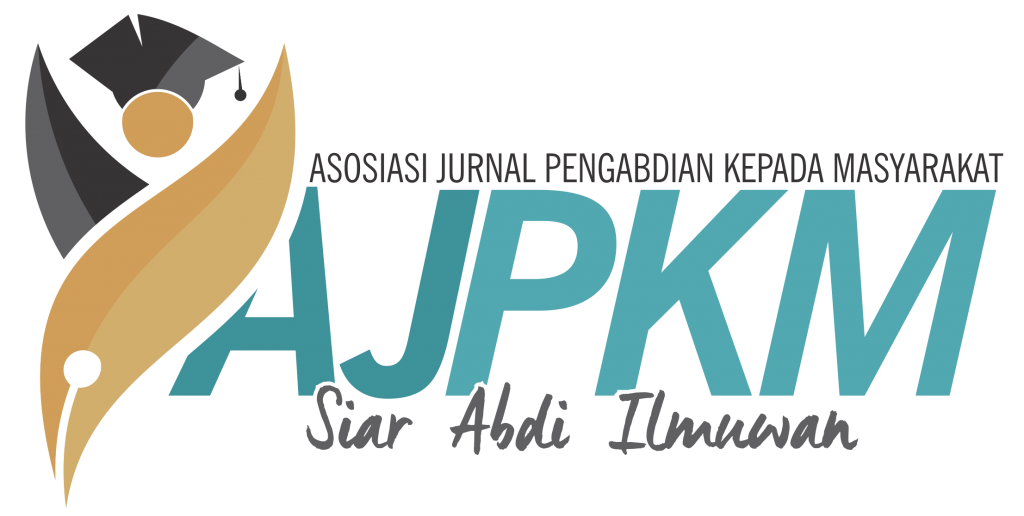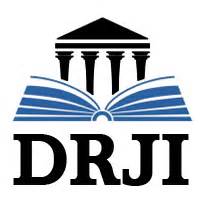LITERASI DIGITAL DALAM MEMITIGASI RISIKO JUDI DAN PINJAMAN ONLINE BAGI KOMUNITAS PEREMPUAN DI DESA BLUNGUN KABUPATEN BLORA PROVINSI JAWA TENGAH
Abstrak
The community service program held in Blungun Village, Blora, Central Java, aimed to improve digital literacy regarding the risks of online loans, online gambling, and cyber fraud. This activity involved members of the village’s Family Welfare Empowerment (PKK) Team and utilized both quantitative and qualitative approaches, with pre-tests and post-tests to measure improvements in digital literacy. The Wilcoxon analysis showed a significant increase in participants' understanding of digital threats. Additionally, the training enhanced participants' social campaigning skills, as demonstrated through their innovative strategies to educate the community about cybercrime. The success of the program was measured by active participation, creativity in developing educational materials, and the enthusiasm of participants in learning new topics. Participants not only increased their understanding but also became agents of change, helping to raise collective awareness and protect the community from digital threats. With significant results, this activity is expected to contribute to strengthening the community's resilience against risks in the digital era.
Pengabdian masyarakat yang dilaksanakan di Desa Blungun, Blora, Jawa Tengah bertujuan meningkatkan literasi digital terkait risiko pinjaman online, judi online, dan penipuan siber. Kegiatan ini melibatkan anggota Tim Penggerak PKK dan menggunakan pendekatan kuantitatif dan kualitatif dengan pre-test dan post-test untuk mengukur peningkatan literasi. Analisis Wilcoxon menunjukkan adanya peningkatan signifikan dalam pemahaman peserta terkait bahaya digital. Selain itu, pelatihan ini juga mengembangkan keterampilan kampanye sosial peserta, yang ditunjukkan melalui rancangan strategi inovatif untuk mengedukasi masyarakat tentang kejahatan siber. Keberhasilan kegiatan diukur dari partisipasi aktif, kreativitas dalam membuat materi edukasi, serta antusiasme peserta dalam mempelajari topik baru. Peserta tidak hanya meningkatkan pemahaman mereka tetapi juga mampu berperan sebagai agen perubahan, membantu meningkatkan kesadaran kolektif dan melindungi komunitas dari ancaman digital. Dengan hasil yang signifikan, diharapkan kegiatan ini dapat berkontribusi dalam memperkuat ketahanan masyarakat terhadap risiko yang dihadapi di era digital.
Kata Kunci
Teks Lengkap:
PDFReferensi
Baber, H., Fanea-Ivanovici, M., Lee, Y.-T., & Tinmaz, H. (2022). A bibliometric analysis of digital literacy research and emerging themes pre-during COVID-19 pandemic. Information and Learning Sciences, 123(3/4), 214–232. https://doi.org/10.1108/ILS-10-2021-0090
Blau, I., Shamir-Inbal, T., & Avdiel, O. (2020). How does the pedagogical design of a technology-enhanced collaborative academic course promote digital literacies, self-regulation, and perceived learning of students? The Internet and Higher Education, 45, 100722. https://doi.org/10.1016/j.iheduc.2019.100722
Cents-Boonstra, M., Lichtwarck-Aschoff, A., Denessen, E., Aelterman, N., & Haerens, L. (2021). Fostering student engagement with motivating teaching: an observation study of teacher and student behaviours. Research Papers in Education, 36(6), 754–779. https://doi.org/10.1080/02671522.2020.1767184
Fázik, J., & Steinerová, J. (2020). Technologies, knowledge and truth: the three dimensions of information literacy of university students in Slovakia. Journal of Documentation, 77(1), 285–303. https://doi.org/10.1108/JD-05-2020-0086
Hatimatunnisani, H., Nurfadillah, H., Wasti, M., Rika, P., & Maharani, R. (2023). Maraknya Judi Online dan Dampaknya Terhadap Pengelolaan Keuangan di Kalangan Mahasiswa (Studi Kasus Pada Mahasiswa Salah Satu Perguruan Tinggi Swasta Di Bandung). Jurnal Sosio dan Humaniora (SOMA), 2(1), 130–136. https://doi.org/10.59820/soma.v2i1.124
Hoque, M. E. (2016). Three domains of learning: Cognitive, affective and psychomotor. The Journal of EFL Education and Research, 2(2), 45–52. Three Domains of Learning: Cognitive, Affective and Psychomotor
Irma, I. Y., Rachman, N. A., & Rifai, B. (2023). The effect of financial literacy on online loans and its impact on poverty. International Journal of Applied Finance and Business Studies, 11(2), 146–154. https://doi.org/https://doi.org/10.35335/ijafibs.v11i2.109
Johnson, M. (2015). Approaches to Girls’ Online Experiences. Dalam J. Bailey & V. Steeves (Ed.), eGirls, eCitizens (hlm. 339–360). University of Ottawa Press. http://www.jstor.org/stable/j.ctt15nmj7f.17
Julien, H. (2018). Digital Literacy in Theory and Practice. Dalam Encyclopedia of Information Science and Technology, Fourth Edition (hlm. 2243–2252). IGI Global. https://doi.org/10.4018/978-1-5225-2255-3.ch195
Juwita, R., Rahayu, D., Nimatu Rohmah, A., & Dhemas Pawae, R. (2024). Unlocking Women’s Empowerment towards Digital Inclusivity in East Kalimantan through Digital Competence Evaluation. Jurnal Ilmu Sosial dan Ilmu Politik, 27(3), 260. https://doi.org/10.22146/jsp.78163
Kadariah, S. (2023). The Impact of Online Loans on The Community. Journal of Islamic Financial Technology, 2(1). https://doi.org/10.24952/jiftech.v2i1.9718
Kamal, K., Makmur, J., Makmur, M. A., & Ibrahim, M. R. (2021). Aksesibilitas media online pada Masyarakat Pedesaan di Kecamatan Bua Kabupaten Luwu. Jurnal_Pekommas, 6(2), 33–40.
Kurniawan, F., & Wijaya, C. (2020). The effect of loan granted factor on peer-to-peer lending (funded loan) in Indonesia. Investment Management and Financial Innovations, 17(4), 165–174. https://doi.org/10.21511/imfi.17(4).2020.16
Laksani, H., Fauziati, E., & Wijayanto, A. (2020). Teachers’ Beliefs in Integrating Digital Literacy in EFL Classroom: Decomposed Theory of Planned Behavior Perspectives. Indonesian Journal of EFL and Linguistics, 5(2), 295. https://doi.org/10.21462/ijefl.v5i2.285
Lanham, R. A. (1995). Digital Literacy. Scientific American, 273(3), 198–200. http://www.jstor.org/stable/24981795
Nagari, P. M., Sahid, S., & Hussin, M. (2023). Critical Success Factors for Enhancing Digital Literacy Among Undergraduate Students. Pegem journal of Education and Instruction, 13(4). https://doi.org/10.47750/pegegog.13.04.30
Neudert, P., Smolka, M., Acksel, B., & Boeva, Y. (2024). Book review: Insolvent. How to Reorient Computing for Just Sustainability. Christoph Becker (2023). Cambridge, Massachusetts, The MIT Press. Journal of Responsible Technology, 20, 100092. https://doi.org/10.1016/j.jrt.2024.100092
OJK. (2024, Juli 12). Statistik Fintech. Ojk.go.id. https://ojk.go.id/id/kanal/iknb/data-dan-statistik/fintech/default.aspx
Russell, R., & Villiers, C. L. (2022). The Role of Women in Stimulating New Types of Value Creation. Dalam Sustainable Value Creation in the European Union: Towards Pathways to a Sustainable Future through Crises (hlm. 276–298). Cambridge University Press.
Sari, M. W., & Novrianto, A. (2020). Analyzing Several Factors that Influence People to Make Loans Online. JHSS (JOURNAL OF HUMANITIES AND SOCIAL STUDIES), 4(2), 179–184. https://doi.org/10.33751/jhss.v4i2.2492
Subagiyo, D. T., Gestora, L. R., & Sulistiyo, S. (2022). Characteristic of Illegal Online Loans in Indonesia. Indonesia Private Law Review, 3(1), 69–84. https://doi.org/10.25041/iplr.v3i1.2594
Suryani, C., & Wiryadigda, P. (2022). Literasi Digital Informasi Guru Mojokerto. Jurnal Communicator Sphere, 2(1), 20–28.
Tinmaz, H., Fanea-Ivanovici, M., & Baber, H. (2023). A snapshot of digital literacy. Library Hi Tech News, 40(1), 20–23. https://doi.org/10.1108/LHTN-12-2021-0095
Tinmaz, H., Lee, Y.-T., Fanea-Ivanovici, M., & Baber, H. (2022). A systematic review on digital literacy. Smart Learning Environments, 9(1), 21. https://doi.org/10.1186/s40561-022-00204-y
DOI: https://doi.org/10.24198/kumawula.v8i2.58494
Refbacks
- Saat ini tidak ada refbacks.
Kumawula: Jurnal Pengabdian kepada Masyarakat Terindeks Di:











21.png)













